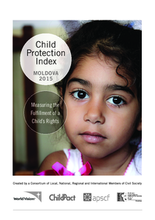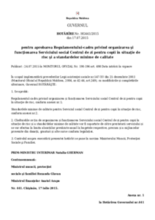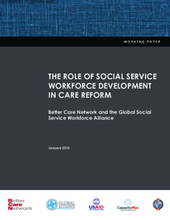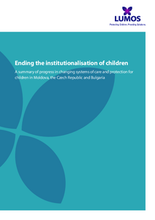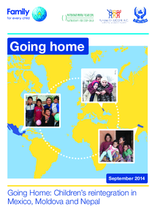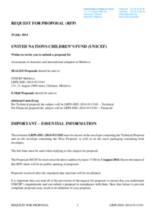This country page features an interactive, icon-based data dashboard providing a national-level overview of the status of children’s care and care reform efforts (a “Country Care Snapshot”), along with a list of resources and organizations in the country.
demographic_data
childrens_living_arrangement
children_living_without_bio
adoption
social_work_force
key_stakeholders
Key Stakeholders
Add New DataOther Relevant Reforms
Add New Datadrivers_of_institutionalisation
Drivers of Institutionaliziation
Add New Datakey_research_and_information
Key Data Sources
Add New DataDevelopment of Integrated Social Care Services for Vulnerable Families and Children at Risk in Moldova
Care Reform Workshop Report
Acknowledgements
Data for this country care snapshot was contributed by partners at Lumos and Changing the Way We Care.
Displaying 171 - 180 of 215
The report Child Protection Index Moldova 2015: Measuring the Fulfilment of a Child’s Rights was presented at an event on 16 June 2015.
The Child Protection Index (the Index) is a comparative policy tool, organised and implemented by local and national level civil society organisations, that examines a country’s current child protection system using a common set of 626 indicators that measure a country’s policy and actions toward greater child protection. This Index measures Moldova’s efforts toward child protection in comparison with other countries in the region.
This article from the Migration Policy Institute examines the impact of labor migration on children who are left behind, from an economic and social lens, and with particular attention to gendered implications.
În scopul implementării prevederilor Legii asistenţei sociale nr.547-XV din 25 decembrie 2003 (Monitorul Oficial al Republicii Moldova, 2004, nr.42-44, art.249), cu modificările și completările ulterioare, Guvernul HOTĂRĂŞTE:
Using data collected from a nationally-representative household survey conducted in Moldova between September 2011 and February 2012, this paper analyses the psychosocial health outcomes of children of migrant parents by comparing them with children without migrant parents (n = 1979).
This working paper, produced by the Better Care Network and the Global Social Service Workforce Alliance, explores the topic of social service workforce strengthening as it relates to child care reform.
This report presents a summary of progress in Lumos’ first three country demonstration programmes – the Republic of Moldova, the Czech Republic and Bulgaria.
United Nations Children’s Fund in Moldova is seeking International Individual Consultant on Human Resources and Training Needs Assessment in social work in the Republic of Moldova.
This report from Family for Every Child and partners summarises research on children’s reintegration that took place in Mexico, Moldova and Nepal from 2011 to 2014.
UNICEF is inviting applicants to submit a proposal for ‘Assessment of domestic and international adoption in Moldova.’

